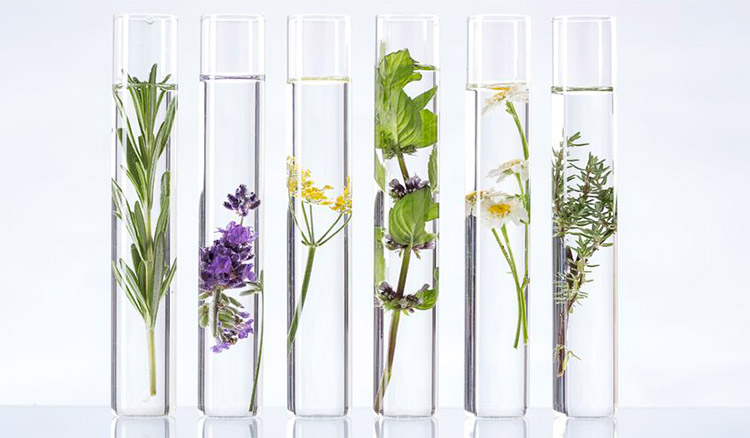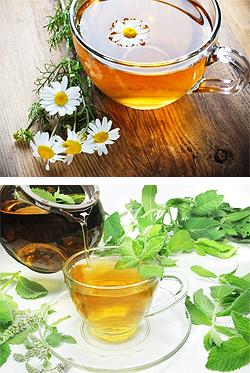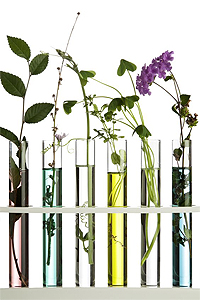FDA Regulation of Essential Oils and Aromatherapy Products

But First, a Story. Once upon a time.... a very long time ago...

Our ancestors didn't take fancy little pink, green and yellow pills for their various aches, pains and medical conditions. There were no drugstores or pharmacies as we know them today (later, there would be apothecaries). Instead, they used plants and herbs as their medicines. Depending on the specific medical situation or complaint, they would ingest or apply the herb crushed or whole. Sometimes instead, they would make an oil-based (maceration), water-based (tea) or alcohol based ("tonic") infusion and ingest or apply it topically as needed.
Documenting and scientifically verifying the effectiveness of specific "remedies" was not like it is today. Back then in these ancient times, there were no carefully controlled experiments or studies. So very long ago, there pretty much was only anecdotal information passed along through trusted loved ones and trusted members of the society either verbally, or sometimes, in written form.
For the most part, our ancestors had a very strong understanding of what botanicals and methods of application were suitable for particular situations. They would traditionally be especially knowledgeable about the specific plants that were native to their area. However, instead of modern day labs and formal testing (which can be biased based on who funds the tests and doesn't guarantee accurate results), it was all pretty much trial and error and word-of-mouth for them. If something worked for them, they'd continue to use it.
(My explanation is a bit generalistic, but please work with me here.)
An Example...

It's widely asserted that chamomile, when properly used, can help encourage relaxation and can be soothing when under stress. Roman Chamomile Essential Oil, for instance, contains 35% of the naturally occurring chemical constituent known as isobutyl angelate, classified as an ester. [E. Joy Bowles, The Chemistry of Aromatherapeutic Oils (NSW, Australia: Allen & Unwin, 2003), 192-195.] Esters have a reputation for their sedating and calming properties. And to quickly add another example, Ginger root and peppermint have a reputation for assisting with digestive complaints.
The potential effects of the chamomile, ginger and peppermint mentioned in this example are certainly not new "discoveries."
At some point in your life, you may have even consumed chamomile tea before bed or ginger or peppermint tea to see if it helped with an upset stomach. Before consuming that cup of tea, it's likely that you did not check to see what studies exist that scientifically prove that chamomile can encourage relaxation or that ginger or peppermint tea are effective for stomach ailments. Instead, a trusted friend or loved one may have suggested you try it, or may have even automatically brewed a cup for you. Perhaps the tea helped in that particular instance for you... perhaps it didn't. If it helped, you likely made a mental note that it works for you, and you may have mentioned your experience to other friends or loved ones when they mentioned having a similar issue.
This is a hugely simplistic example, but an important one. It is relevant to the growing number of us who embrace natural ways of taking control of our nutrition and health. I'll be getting back to this example later...
The Advancements In Chemistry Lead to the Discovery and Analysis of the Natural Compounds Found in Botanicals and their Synthesis in Drugs
As time progressed, advancements in chemistry lead to the analysis of the naturally occurring chemicals found in plants that were responsible for their effectiveness. For instance, White Willow Bark contains salicin, a natural anti-inflammatory that was identified in the nineteenth century. White Willow Bark was used by Hippocrates over 2,000 years ago to ease headaches and other muscular pains. As I explain in the article Constituents - What Do Essential Oils Consist Of?, Salicin is a cousin to salicylic/acetylsalicylic acid, more commonly known as aspirin. White Willow Bark is still routinely used by herbalists to more naturally relieve pain and inflammation.
The United States Food and Drug Administration
As more and more "drugs" were developed and made available to consumers, a growing need to effectively define and regulate them became necessary. The United States' Food and Drug Administration (FDA) formally began in the 1930s, however, its origins existed as far back as the mid-nineteenth century.
There is likely no doubt in most people's mind that food and drug regulation is absolutely necessary. Whether the FDA is succeeding, however, is subject to huge debate and is beyond the scope of this article.
The New Gray Area for Herbs and Essential Oils
There is a huge gray area that plagues those trying to honesty sell essential oils, herbs and other botanicals.
Back in the days of our ancestors, they were generally able to trust in the advice of their doctors and loved ones. However, just like today, there were deceitful (and sometimes just plain stupid) individuals coming into town promising "miracle cures" with their magical tonics and other concoctions. When someone is in great pain or suffering, it can be hard to ignore the promises of an easy and instant cure.
One of the FDA's responsibilities is to attempt to protect consumers today from modern-day hacks that make false claims and mislead the public. The FDA's responsibility is to also ensure that drugs are safe for their intended market, that they are properly and clearly labeled, and that all necessary warnings and safety precautions are disclosed.

We get into a gray area when a product includes claims that wind up classifying the product as a drug.
Let's revisit and expand upon my peppermint tea example for a moment... I grow peppermint in my back yard. If I was to harvest some and sell it to you with the statement that it may potentially help with digestive complaints, my fresh peppermint would probably now be classified as a drug by the FDA even though that very same peppermint could be used to simply flavor candies. And because I did not seek and obtain approval from the FDA, I would probably not be in compliance with their regulations.
Today, pharmaceutical sales are huge business... and huge politics. I don't claim to fully understand it all. But logic indicates that it's in the best interest of the pharmaceutical giants to attempt to keep FDA control at a minimum for them while simultaneously trying to make it harder for those marketing natural alternatives that compete with them in the marketplace.
FDA regulation of natural products, including essential oils, is a necessity to protect consumers against companies that misrepresent or mislabel the products that they sell.
Until several years ago, the FDA didn't seem to pay too much attention to companies that sell essential oils. On September 22, 2014, the FDA sent warning letters to two essential oil companies. You can read more about the details and warning letters by reading the Laws and Regulations page available through the Alliance of International Aromatherapists.
The issuance by the FDA of these warning letters is an indication that the FDA will likely monitor companies selling essential oils much more closely. This is advantageous for the consumer, however, it also poses a number of challenges when shopping for essential oils.
Many essential oil retailers, vendors and suppliers are highly knowledgeable, educated and experienced in the use of essential oils. They take great reward in trying to honestly help others select the essential oil(s) most suitable for them. Until recently, it's been common practice for essential oil vendors to describe the benefits and therapeutic applications of each essential oil offered for sale. With reputable sellers, providing detailed essential oil descriptions that include therapeutic applications is advantageous for both the seller and consumer.
However, the significant and serious problem arises when an unethical company makes false or unsafe claims regarding the usage of essential oils. These types of sellers can cheat consumers out of countless dollars. More seriously, such sellers can cause significant harm to their customers.
FDA Aromatherapy Regulations
Aromatherapy products are generally classified as a cosmetic, a drug or both by the FDA. According to the FDA, "Under the law, drugs must meet requirements such as FDA approval for safety and effectiveness before they go on the market. " The FDA also states "If a product is intended for a therapeutic use, such as treating or preventing disease, or to affect the structure or function of the body, it’s a drug. For example, claims that a product will relieve colic, ease pain, relax muscles, treat depression or anxiety, or help you sleep are drug claims."
For Consumers
We as consumers expect the sellers and manufacturers that we purchase from to be able to provide all (or at least enough) information for us to be able to effectively understand and safely use the product that we purchase without having to first take an elaborate course or read through one or more extensive books. [Technically, however, we all should educate ourselves about the products that we purchase through multiple sources. Whether we are buying the newest smartphone, a new child car seat or essential oils, we should make it a habit to verify all seller claims. The point remains, however, that customers expect sellers to provide detailed information regarding the products that they sell.]
With that mentality, it is understandable that many customers have expected (and even demanded) that essential oil sellers provide accurate and detailed information regarding the therapeutic applications for each essential oil they sell. For years after establishing AromaWeb, I, too, was ignorant and confused about FDA regulations (and still have much to learn).
A number of essential oil companies attempted to provide accurate and well researched information regarding the properties and actions of essential oils based on scientific studies and widely supported anecdotal evidence supported by experts, educators and authors in the holistic aromatherapy industry. However, when sellers include this information, it can lead to their oils being classified as drugs by the FDA.
Because it is so very costly and time consuming to gain FDA approval for products classified as "drugs," most holistic aromatherapy companies are not be able to afford to seek approval for drug status for each of their essential oils that contain statements and comments that the FDA defines as therapeutic claims in their product descriptions, packaging or supporting social media and marketing materials.
With the FDA cracking down on these claims, essential oil companies will be refining their descriptions to ensure compliance so that their oils do not wind up being classified as "drugs" by the FDA. Again, it's not merely the physical essential oil itself that may deem it a drug vs. just a cosmetic, but it's how the essential oil is described by a seller that constitutes whether the FDA will classify it as a "drug."
Some companies may not be able to immediately edit all of their descriptions, statements and supporting materials. It will take some companies time to fully understand how to become compliant and properly implement the necessary modifications.
As a consumer, it's in your best interest to enlighten yourself about FDA guidelines for essential oils and aromatherapy products and decide for yourself if you are comfortable doing business with companies that have not yet been able to fully comply.
A huge dilemma for some small but ethical aromatherapy companies is that they simply don't yet fully understand the FDA guidelines and what constitutes a medical or therapeutic claim. It can be very confusing. Few attorneys fully understand or specialize in FDA regulatory matters. Lawyers specializing in FDA compliance are generally very costly. Right now, there is a lot of confusion going on regarding what properties and what language can be used to describe essential oils. As already mentioned, it might take some companies awhile before they fully understand how to properly become compliant. It's going to take time for this all to smooth out.
The FDA guidelines will help ensure that essential oil companies making unsubstantiated claims will be held accountable. However, it also binds the hands of reputable companies that desire to provide accurate information. Consumers now will be even more dependent upon AromaWeb, reputable holistic aromatherapy educators and reliable books.
For Essential Oil Suppliers/Retailers
The warning letters sent by the FDA to several large essential oil suppliers indicates that the FDA will likely be keeping closer tabs on companies selling essential oils. It is important to ensure that you understand the guidelines set forth by the FDA and review all of your product descriptions, social media comments and supporting materials to ensure compliance.
FDA Aromatherapy Product Guidelines:
http://www.fda.gov/cosmetics/productsingredients/products/ucm127054.htm
Alliance of International Aromatherapists Laws and Regulation Help:
https://www.alliance-aromatherapists.org/laws-and-regulations
